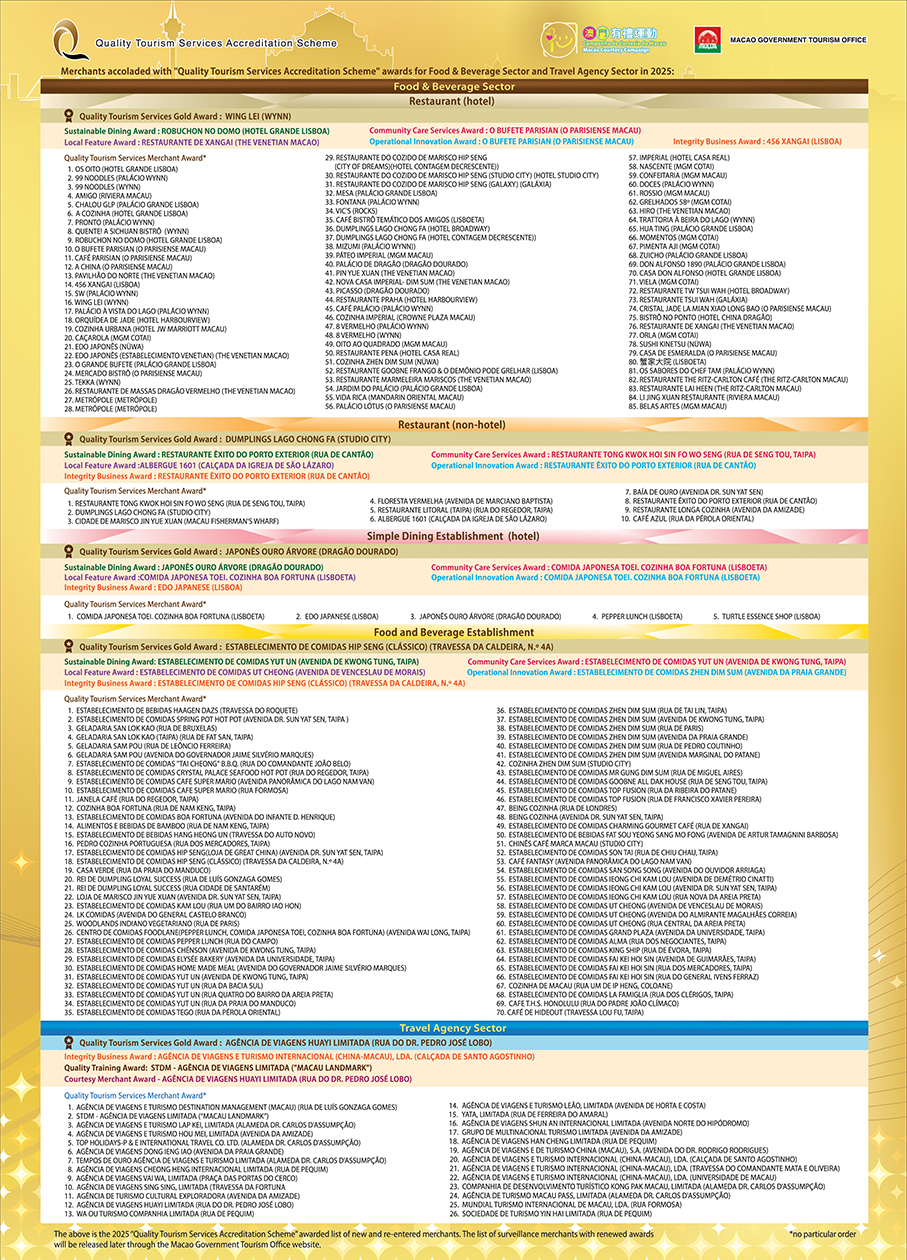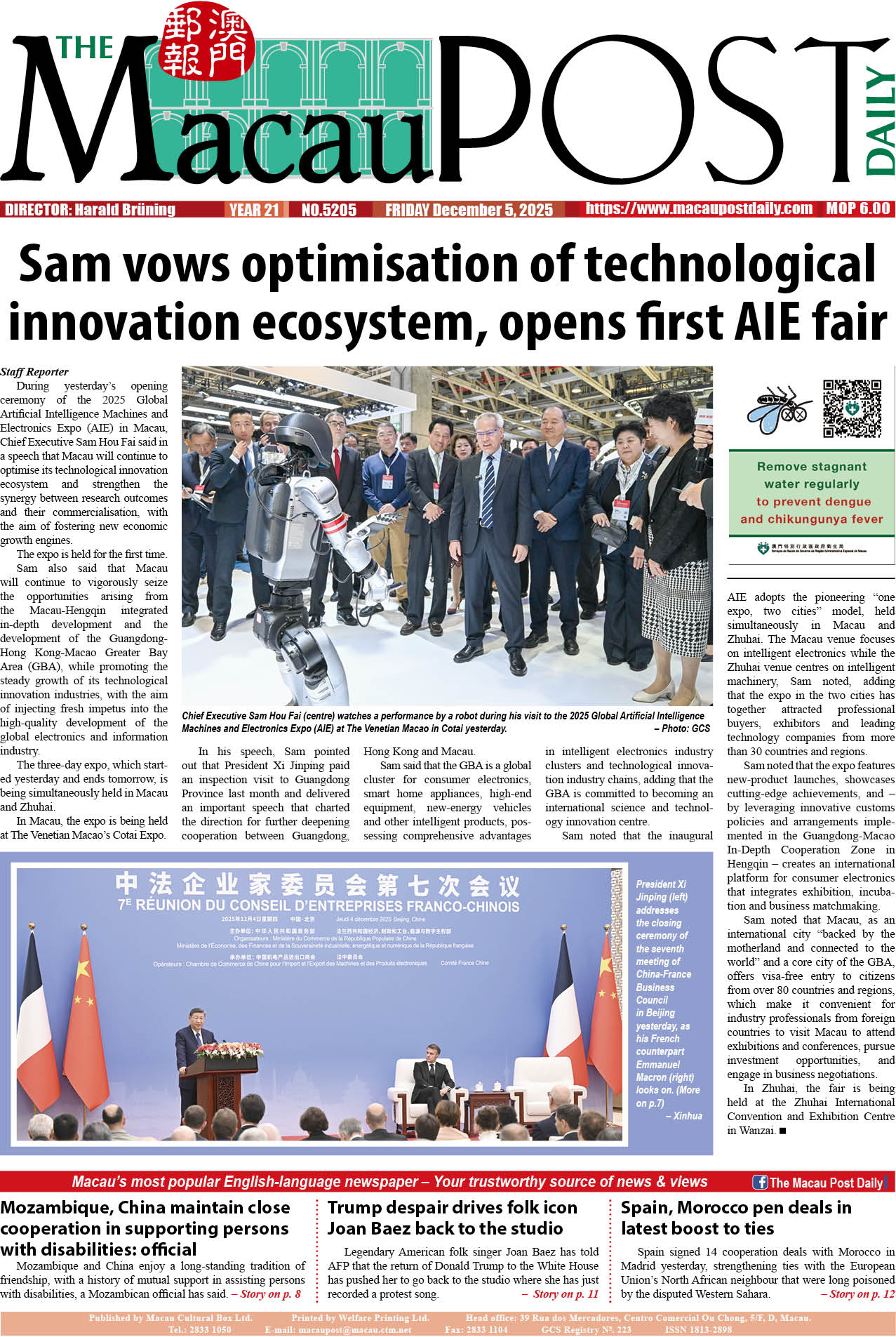Editorial
I hope that the local government’s recently accelerated adjustments to its nearly three-year-long COVID-19 policy will be gradual, well thought-out and as simple and clear as possible, based on the central government’s “people-first” approach thanks to which the world’s most populous country’s novel coronavirus infection and fatality rates are far lower than those in other countries.
The situation reminded me of the centuries-old idiomatic expression: “Don’t throw the baby out with the bathwater”, i.e., one should always avoid discarding something good when trying to get rid of something unwanted.
The adjustments are, of course, only possible because the Omicron variant turned out to be much less lethal than initially feared.
Omicron just marked the first anniversary of its “baptism”. The World Health Organisation (WHO) announced the pandemic’s then latest “variant of concern” – named “Omicron” (the 15th letter of the Greek alphabet) – in late November last year.
The WHO uses the Greek alphabet to describe variants of concern of SARS‑CoV‑2, the virus which causes COVID-19. On November 26, 2021, Omicron, which was first reported in South Africa, was assigned to the B.1.1.529 variant.
Zhong Nanshan, the nation’s internationally renowned infectious disease expert, reaffirmed at a livestreamed academic conference on Friday that the symptoms caused by the prevalent Omicron variant – Delta, its predecessor, seems to have been almost forgotten by the general public – are, on average, less severe than older variants.
However, Omicron is more transmissible than Delta and, ultimately, it can still throw a fatal punch.
Secretary for Social Affairs and Culture Elsie Ao Ieong U warned at a press conference on Thursday, the Feast of Immaculate Conception of all days, that in the wake of the step-by-step easing of the government’s COVID-19 prevention and control measures, between 50 and 80 percent of the population was expected to contract the novel coronavirus.
That’s a scary figure – up to 537,520 COVID-19 infectees among Macau’s population of 671,900 (as of the third quarter). Assuming, for instance, that 0.1 percent of the infected persons die of COVID-19, this would still amount to 537 fatalities.
Thanks to the government’s strict COVID-19 prevention and control measures since January 2020, when the Health Bureau confirmed the city’s first COVID-19 case, Macau’s novel coronavirus death toll stands at “just” six. Since January 22, Macau has recorded 3,148 COVID-19 cases, of which, as of yesterday, 2,724 had been cured, according to official data.
Macau has rightly been described as an “oasis” in the global COVID-19 desert, considering its markedly small number of confirmed cases and very low death toll.
For instance, Taiwan has so far reported 8.4 million COVID-19 cases including over 14,600 deaths. In Hong Kong, the tally stands at over 2.2 million including nearly 11,000 fatalities.
The global COVID-19 tally stands at about 653 million, or 8 percent of the world’s population, including 6.6 million deaths – over 1.1 million in North America and more than 2.1 million in Europe. The immense fatality numbers in both the US and EU are, in my view, evidence of both professional inaptitude and political irresponsibility.
Mainland China’s COVID-19 infection and fatality numbers show that a developing country is able to tackle a public health crisis of extraordinary proportions. The mainland’s official tally stood at 363,072, including 5,235, yesterday.
One point, of course, is to save people’s lives, the other is to protect people’s livelihoods, as public health and socio-economic development inevitably run in tandem, even during a major crisis such as the COVID-19 pandemic.
On the economic front, mainland China has performed better during the COVID-19 calamity than most other countries. However, as one would expect, both the pandemic and its economic consequences have resulted in a degree of frustration among many not only in the mainland but also, for example, in Hong Kong and Macau over the past three years.
I agree with Zhong, the infectious disease expert, that while COVID-19 control measures must be maintained to protect people’s lives, the anti-COVID-19 strategy should now switch from preventing transmission to ensuring that those unlucky enough to get infected do not suffer from serious illness or even die.
Pent-up frustration and “pandemic fatigue” are also increasingly noticeable in Macau. That’s why the easing of the COVID-19 prevention and control curbs has been widely welcome – by the business and expatriate communities in particular. Mandatory hotel quarantine has certainly been the most frustrating element for many in Macau – and many of us have avoided travel for up to three years for the only reason that we wanted to avoid ending up in quarantine upon return to Macau. On the other hand, I am quite sure, mandatory quarantine has saved lives by reducing the transmission risk in the community.
The government must now focus its strategy on the effectiveness of home quarantine and vaccination of the whole population, the very old and the very young in particular.
I do have confidence in our Health Bureau whose staff deserve our admiration and respect. What we need is careful and gradual adjustments to the restrictions that have made life difficult for all of us for so long, but always based on the “people-first” principle – and by people I do mean everyone – workers, businesspeople, civil servants, children, the elderly. Adjustment for the sake of adjustment would be irresponsible.
I also hope that the new rules will be as straightforward as possible, such as who needs to get tested when, where and how (RAT or NAT) and who is required to undergo quarantine.
As a China Daily editorial rightly pointed out last week: “Surveillance, testing, sequencing and vaccination remain the most effective way to prevent significant mortality.” I also hope that everyone will continue to wear their facemask when out and about and that gradually everyone will have got their booster jab (I am planning to get mine by the Chinese New Year).
What Macau must do is to adjust its COVID-19 control and prevention measures according to our city’s actual conditions. The authorities should appeal to people’s common sense in getting used to the adjustments that, anyhow, must never be implemented in a rush. Urging people not to panic because of the expected increase in cases due to the relaxed restrictions is futile as it could actually trigger the opposite. A total of 106 new cases in the community were reported by the Health Bureau on Saturday.
WHO chief Tedros Adhanom Ghebreyesus’s remarks about the matter early this month hit the nail on the head: “We are much closer to being able to say that the emergency phase of the pandemic is over – but we’re not there yet.” That’s it.
So let’s all be cautiously optimistic that the gradual relaxation of the local and central governments’ COVID-19 prevention and control will produce the desired results by saving people’s lives and protecting their livelihoods – but without throwing out the champagne with the cork.
– Harald Brüning










